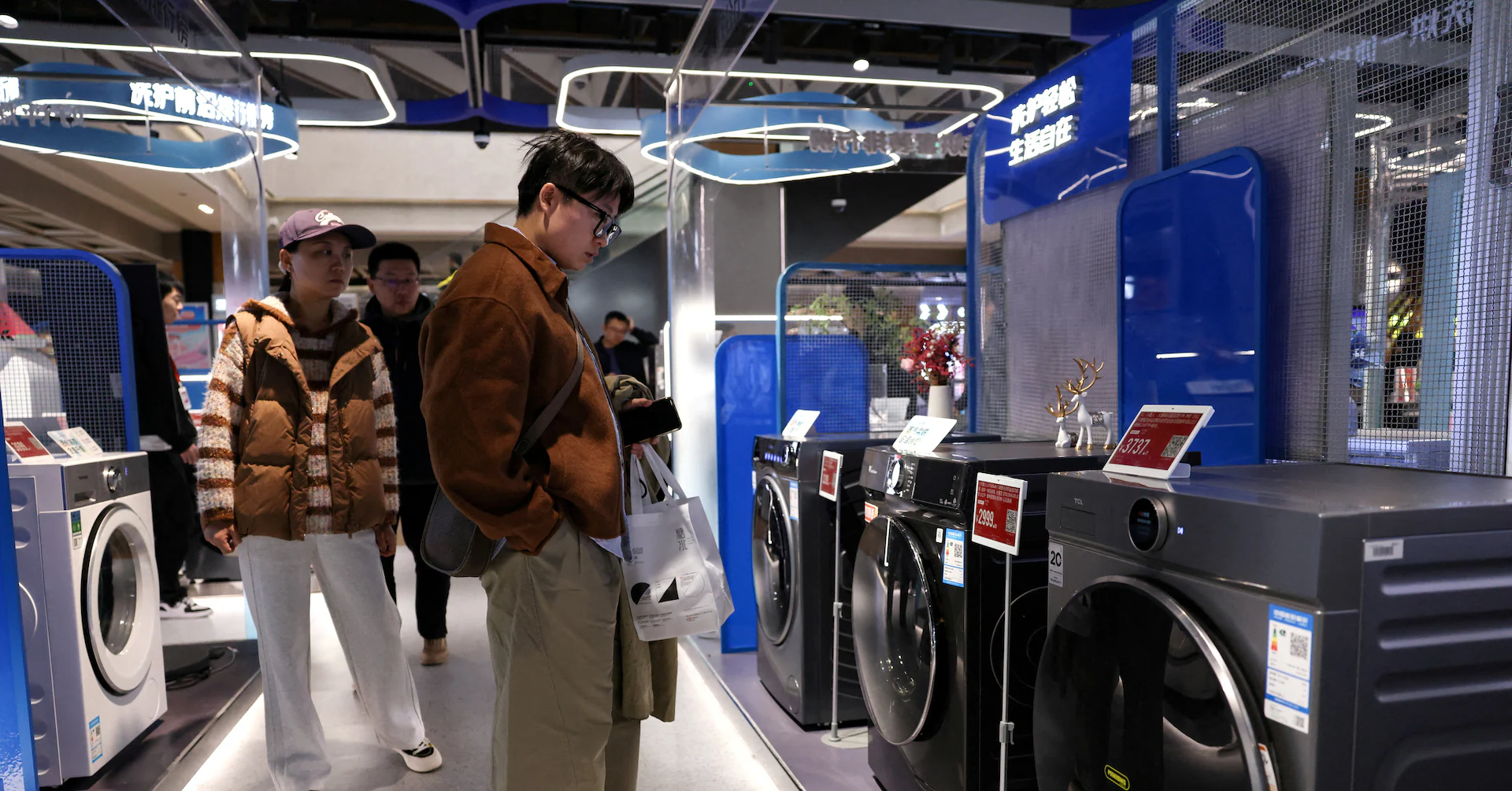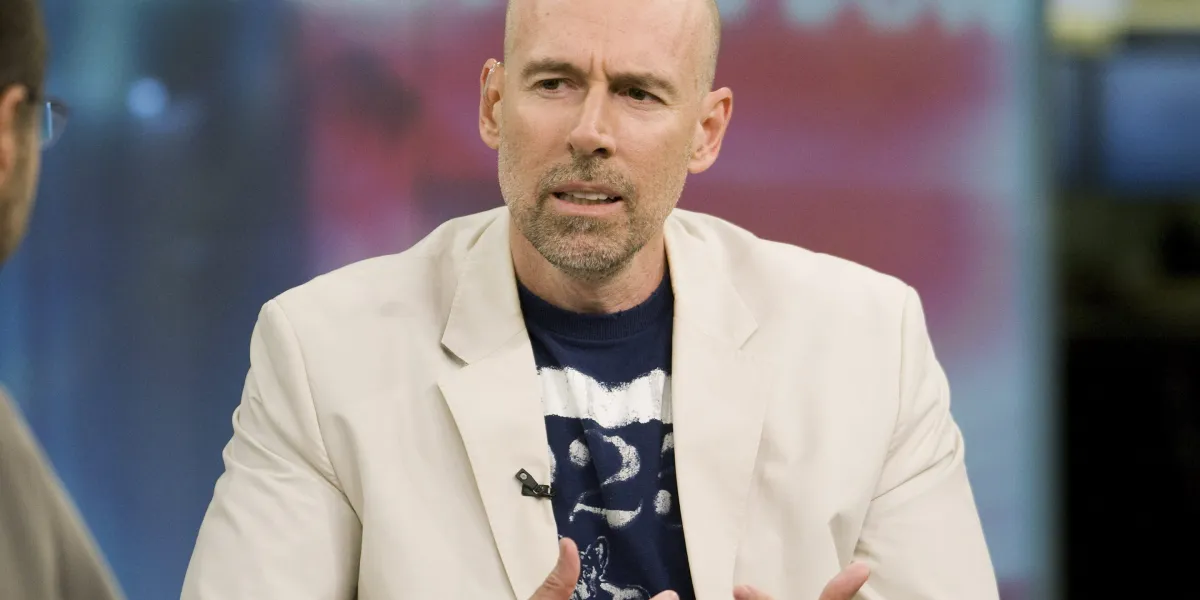Copyright Reuters

BEIJING/SINGAPORE, Oct 21 (Reuters) - Chinese doctor Lisa Zhu took full advantage of consumer goods subsidies this year, buying three air conditioners and a washing machine - the big-ticket spending policymakers want to see from households as they target roughly 5% economic growth. But there is a catch. Sign up here. "I no longer need to purchase any home appliances," said the 36-year-old. "These should last for several years." FROM TAILWIND TO HEADWIND? China's 300 billion yuan ($42 billion) subsidies, equivalent to about 0.2% of gross domestic product, are punching above their weight this year, with analysts saying the spending they incentivised had a greater impact on growth than their size. But, into the final quarter of the scheme - which supports purchases of appliances, electronics and electric vehicles - that payoff is already fading. What's worse, this year's consumption growth is borrowed from the future, with sales of these durable goods likely to plunge in coming months as people like Zhu no longer need new ones. These subsidies were the most significant move that policymakers took this year to spur household demand - China's decades-old structural weakness. Their diminishing impact puts pressure on policymakers to introduce challenging and costly reforms to bring about more durable change and put the economy on a more sustainable footing. "Such policies don't boost residents' income to create sustainable consumption," said Hannah Liu, China economist at Nomura, referring to the subsidies. "Instead, they encourage people to advance their durable goods purchases through one-time price reductions. This design inevitably leads to a payback effect." China's finance ministry and the state planner - the National Development and Reform Commission - did not immediately respond to requests for comment. Finance Minister Lan Foan said in September the policy deployed "real money to stimulate consumer vitality." In the first nine months of the year, sales of refrigerators spiked 48.3% from the same 2024 period. They rose 34.9% for electric vehicles and 26.8% for audio-visual gadgets, state media reported last week. Larry Hu, chief China economist at Macquarie, says the subsidies have probably contributed some 0.5 percentage point to GDP this year. But Nomura expects home appliance sales to already drop in the fourth quarter by around 20% year-on-year, and auto sales by 2.0% due to the front-loaded buying and the base effect caused by a similar, but smaller subsidy scheme at the end of last year. This means that the "payback effect" is already in play, Liu said. SHOULD CHINA MASSAGE ITS CONSUMERS? Shi Xiaolan, a salesperson at a home appliance store in the eastern Anhui province, says this is already visible on the ground. Her shop's sales fell to 3 million yuan in July from 13 million in June and haven't recovered since. "Customers made purchases in advance, which is why our outlook is not very good," Shi said. "Each month is harder than the last." Morgan Stanley's chief China economist Robin Xing says Beijing could focus on subsidising the service sector next year, by issuing vouchers for dining out, going to the cinema or spas, or travelling. "By subsidising services, Beijing can reduce the tendency for consumers to frontload their purchases, which often leads to a sharp slowdown after policy is phased out," Xing said. "The labour-intensive nature of services means this approach could be more effective in creating jobs and thus generating spillover effects." But, Xing added, China should also take structural measures that shift "the supply-centric business model in the last 20 years to one that places greater emphasis on household well-being with social welfare reform." CALLS GROW FOR WELFARE REFORM Data showed on Monday that retail sales growth is falling behind the overall economy, suggesting that cyclical consumption stimulus hasn't prevented China's structural supply-demand imbalance from worsening. China's household consumption lags the global average by some 20 percentage points of GDP, while its investments - mainly in infrastructure and manufacturing - are about 20 points ahead, making the economy too reliant on exports at a time when trade tensions with Washington and others are heating up. This is also fuelling deflation at home. Xing estimates that increasing the social welfare accounts of farmers and rural migrant workers to about 1,000 yuan per month from a minimum of 143 yuan currently, would lift Chinese consumption to 45% of GDP in five years from about 40% currently, surpassing $10 trillion. It's the "blue sky scenario," he says, but "this is the ideal way." "Otherwise, these consumer goods subsidies are cyclical, short-term measures. It's piecemeal and unlikely to reflate consumption in a sustainable way." In the central city of Jingzhou, Cheng Sha, who owns an air conditioner shop, feels the effects of an economy relying on external demand at the expense of consumers, who feel increasingly worried about their jobs and incomes. The 42-year-old worries that as the effect of subsidies fades into 2026 he won't be able to keep the shop open. He says two-thirds of the 15 merchants in the city of 5 million selling air conditioners are in a similar situation. "The entire city is poor," said Cheng. "Stores in various sectors are closing down one after another." "If people don't have money, those subsidies can't stimulate consumption." ($1 = 7.1241 Chinese yuan renminbi) Reporting by Liangping Gao, Ellen Zhang and Kevin Yao in Beijing and Claire Fu in Singapore; additional reporting by Joe Cash in Beijing; Graphics by Sumanta Sen; Writing by Marius Zaharia Editing by Shri Navaratnam



